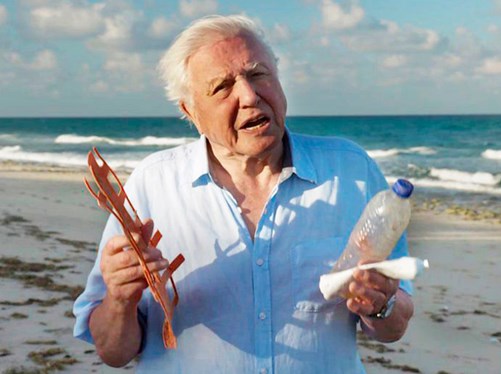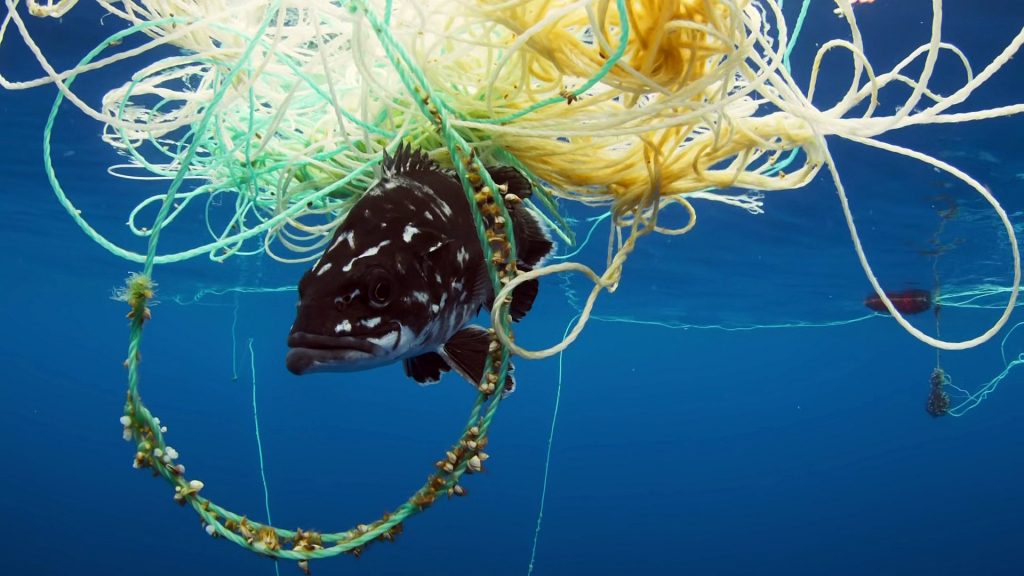
16 years later, BBC came back with another miraculous nature documentary “Blue Planet 2”. I got obsessed with all nature documentaries ever since I watched the original Blue Planet because of its captivating visual and educational facts. I’ve been watching Blue Planet 2 lately and realized that there is a greater emphasis on environmental sustainability than before. The production team kept delivering subtle messages regarding saving the ocean and marine life throughout the entire film narrated by famous natural historian David Attenborough, and the film is so beautiful that it is almost impossible to not to reflect on my personal consumer behaviour and repent on the wrongdoing I’ve done to the Earth.
I came across an interesting article the other day, and it said that 88% of people who watched “Blue Plant 2” have now changed their lifestyle. In the last episode of Blue Planet 2, there was a scene where albatross parents fed plastic to their albatross babies, and it shocked many audiences as they realized the damaged they have done to the environment and these poor birds. New research conducted by a British supermarket chain called Waitrose shows that 88% of people who saw the documentary have since changed their behaviour as a result. Half of these people claimed that they had drastically changed their behaviour, and the other half claimed they had somewhat changed.

Now, boycotting plastic products is the hottest trend in the U.K., and people’s attitude towards plastic bags, straws and packaging will never be the same. There are also some numbers that struck me; in the report, the number of people who are now using reusable water bottles has increased by 60% than 2017, and over 70% of them are ranging from 18 to 24 years old. Waitrose’s customer service team has also got 800% more questions regarding plastic than ever.
It is interesting to see a momentous consumer behaviour change on account of one nature documentary. Behaviour change is a tough cookie to crack when it comes to sustainability, and marketers and governments have been working on this issue for many years. I think it is essential for researchers to study the film and understand why it caused the movement thereby being able to learn a new way to encourage people to think and act green.
Source: https://www.globalcitizen.org/en/content/88-blue-planet-2-changed-david-attenborough/
SarahBreakey
March 25, 2019 — 12:35 pm
This was a great read. I haven’t seen Blue Planet 2, but I’m definitely more intrigued in watching it now. I completely agree with you – when brands (or in this case, media) make bold statements about sustainability, people listen. And while it seems that Blue Planet 2 took a subtle approach, their opinions and lessons are valuable nonetheless. I am of the opinion that work like this is essential in creating behaviour change for consumers. As we’ve discussed numerous times in class, behaviour shifts are challenging, and I think appealing to emotion is a very effective way in creating change.
CindyOlsson
April 2, 2019 — 3:44 pm
I didn’t know that Blue Planet instigated behavioral change – that’s amazing! A series has been more effective in changing the world than the government has. I can’t say I’m too surprised. In this day and age, people are so into entertainment, the media, and Netflix. The only way to reach consumers and get them to change behavior is by communicating sustainability issues through mediums/channels that they use. I know that Blue Planet 2 is on Netflix, thus, reaching a mass audience. And I think that this is a great medium as it provides for a large platform to voice sustainability concerns. People go into the series expecting to see beautiful shots of our planet; however, Blue Planet is being transparent, raw and authentic by showing environmental issues and I think this is really effective to the audience who watches the show.
benjamin numerow
April 8, 2019 — 12:43 pm
As someone who isn’t usually a fan of movies, I will happily turn on any Attenborough-narrated nature documentary that is released. Not only are they extremely entertaining, but – as you mentioned – they take great strides in educating the public on the impacts of their actions by giving them a close, intimate look at the animals they hurt.
To combine entertainment with education is important, as it allows for the subconscious learning of ideas without people even realizing it. There are a ton of movies just like the Blue Planet series with strong messages, and it’s no surprise why they are some of the most popular documentaries out there.
CoboAlvarezDeToledo
April 8, 2019 — 4:29 pm
Thank you for sharing, Chloe!
As an avid skier, I have also seen a similar shift towards sustainability in yearly ski films. Skiers heavily depend on the weather and the planet to be able to perform the sport we love. I think that highlighting sustainability through showing instead of telling is much more powerful. For example, Blue Planet 2 showing the albatross feed its offspring plastic is a visually disturbing sight. If you were to tell someone that this was happening, it is much less likely to induce a behaviour change than showing them would. I see the same thing in ski films! Directors and producers are visually showing the affects that climate change is having on ski communities, and it is much more shocking than reading about it. I believe that showing, not telling people about climate change is much more impactful, and I am happy that so many production companies are starting to use their platforms to change people’s perspectives. Thanks again!
Cobo